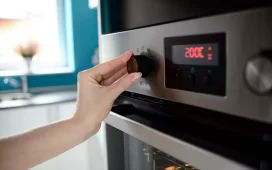Everybody makes mistakes, but generally we have a far less accepting attitude toward our errors when they cost us large sums of money. In real estate, even small errors can lead to losses of thousands of dollars, which puts a lot of pressure on those trying to navigate the market. When it comes to choosing a second mortgage loan, there are some pitfalls that can leave you in the hole for greater amounts than you’d thought – and this can, if left unpaid, result in the foreclosure of your home.
How can you avoid this alarming scenario? The key is to know exactly what you’re getting into, what all of the related terms mean, and how your second mortgage will impact your overall financial situation. Below are the three most common mistakes that lenders see homeowners make when they opt for a second mortgage on their property.
Choosing the Wrong Kind of Second Mortgage
There are two types of second mortgage. The first is a home equity line of credit, or HELOC, that the homeowner can withdraw from as they choose. The second is a lump sum payment loan, wherein the homeowner receives a single, large payment for the total amount of their loan. Both loan types serve a purpose, but usually it’s better to opt for one over the other.
What is HELOC?
A HELOC loan is invaluable when you are making improvements to your home, especially if your ambition is to eventually sell the property. A line of credit is most useful when you’re not sure how much you actually need to spend, or when exactly you’re going to spend it. With a HELOC, the homeowner is under no obligation at any time to withdraw any of their available funds.
Lump Sum Second Mortgage Loans
A lump sum payment loan is great for making large expenditures that will advance your financial situation. Many people use this type of loan to pay for higher education, the resulting degree of which can improve a person’s financial standing.
It is also very common for individuals to use a lump sum loan payment to consolidate their existing, unsecured debts. This is because the interest rate on a second mortgage is often less than that of many credit cards or some other loans.
Withdrawing Too Much from the Home’s Equity
The equity that you withdraw via a second mortgage may have lasting impacts on the future of your mortgage situation. Taking too much money out can make it difficult or even impossible to refinance your mortgage later. It could also make it more challenging to obtain additional lines of credit at a later date.
Not Being Realistic
Your financial circumstances can change rapidly. If they change too much after taking out your second mortgage and you find yourself losing income, you could find yourself in some trouble. Because second mortgages work by using your home itself as collateral, there is a very real risk of foreclosure if you default on your monthly payments. If you are not absolutely confident that you can consistently and reliably repay your second mortgage loan, it might be the most prudent move to search for other loan options.
Getting a second mortgage is a risky move all on its own, but it’s even riskier when you consider how easy it is to make one big, expensive mistake. It is best to carefully assess your situation and your loan options before making a decision. If you find yourself struggling to understand any of the terms and conditions of second mortgages, do not take a chance by making an uninformed decision. Recruit the help of a real estate expert to help you.







